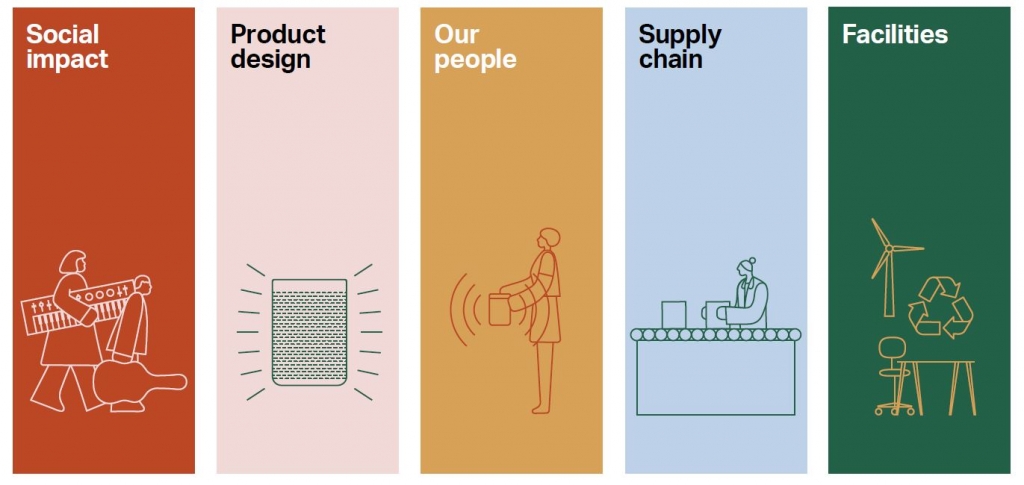1. Focus on audiences
Who do you want to talk to? Narrowing your audiences will help you target your messages and engage with those important stakeholders who are most interested in your social and environmental performance. We’ll help you decide who’s important.
2. Ensure transparency
Sharing learnings, challenges, and progress are essential for credible sustainability reporting. We’ll support your telling of a clear, authentic story backed by sound data (avoiding greenwashing!).
3. Follow frameworks and regulations
Voluntary and mandatory sustainability reporting frameworks have evolved with a sharper focus on risk management. While this shift supports transparency, comparability, and accountability, it can demand more time, effort, and cost. We’ll reduce your workload and guide you through the options which, depending on your location, could include:
- EU Corporate Sustainability Reporting Directive (CSRD) / European Sustainability Reporting Standards (ESRS)
- Global Reporting Initiative (GRI)
- Principles for Responsible Investment (PRI)
- Sustainability Accounting Standards Board (SASB) and Task Force on Climate-Related Financial Disclosures (TCFD), now overseen by International Sustainability Standards Board (ISSB) as part of the International Financial Reporting Standards(IRFS)
- UN Global Compact (UNGC) and Sustainable Development Goals (SDGs)
4. Awareness of ratings, ranking, and indexes
If well prepared, sustainability reports can provide much of the data and content demanded by external raters and rankers. We’ll work with your sustainability, financial, and legal teams to respond to a range of external sustainability benchmarks such as the CDP, Dow Jones Sustainability Index (DJSI), and other country-specific or sector-specific frameworks.
5. Preparing for assurance and verification
External verification of content and data can help improve the credibility of sustainability reports, and is demanded by some audiences. We’ll prepare you for the rigour of verification by, for example, logging the necessary links to source material and data.
6. Gathering content
A great report starts with the voices of the people who work every day to deliver your sustainability initiatives and meet your targets. They know the content better than anyone else. Early in the reporting process, we meet with your subject matter experts to agree key content and messaging, and then gather the necessary information.
Our team is experienced in engaging with employees at all levels including senior executives and board members. We bring cross-sectoral sustainability knowledge and curiosity. We ask sensible questions, pursue impactful content, and gather the essential information required for a high-quality report.
7. Collecting and managing data
A good sustainability report includes credible data. Collecting and collating this is often a challenge. We’ll support your collection process. And because we’ve handled a lot of sustainability data, we’ll challenge anything that doesn’t look right.
8. Report drafting, editing, and refinement
Sustainability reports must be clearly laid out and easy to read. They should reflect your corporate values and support your broader communications. We’re passionate about good writing and our team will develop a compelling narrative that includes your key messages while meeting the needs of your target audiences.
9. Sustainability report design
Our team of creatives will support every aspect of report design, including:
- Concept development
- Full design and layout, aligned to your brand guidelines
- Graphs, charts and infographics
- Iconography
- Illustrations
Alternatively, we’re happy to work with your design team.
10. Managing the project
Efficient project management is essential. We’ll tailor our project management style to your preferred way of working.
11. Translation
We’ll work with you to ensure effective translation.
12. Promoting your report
We’ll support the launch and promotion of the report with:
- Launch strategy
- Briefing notes or decks
- Press releases
- Social media campaigns
- Summary reports — general or targeted towards specific audiences such as customers / employees / investors / partners.









